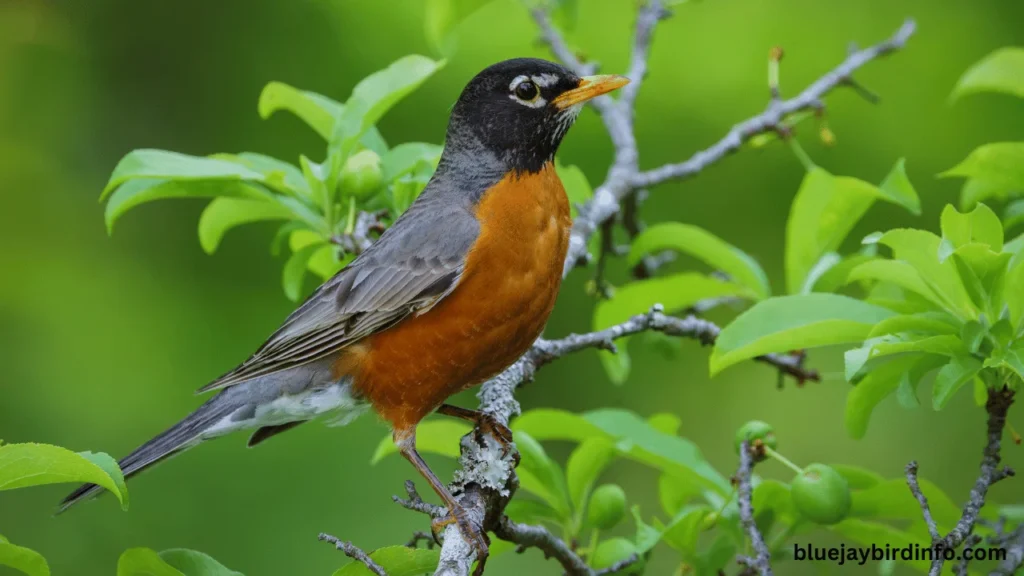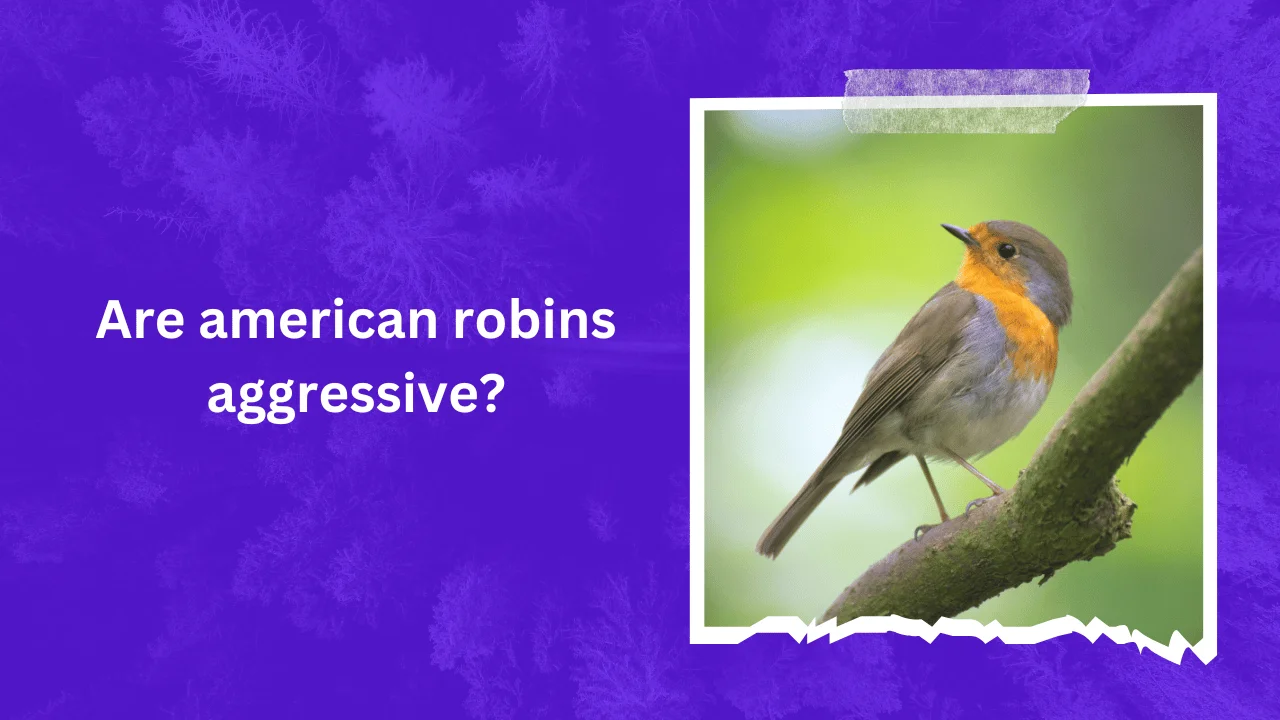Ever seen a Robin happily hopping around your yard, its cheerful song brightening your day?
These seemingly friendly birds are a familiar sight for many. But what if we told you there’s more to Robins than meets the eye? While Robins are generally considered docile creatures, they can exhibit surprisingly aggressive behavior under certain circumstances.
This might come as a surprise! After all, who would expect such a small, seemingly harmless bird to get feisty?
But understanding Robin aggression is important for anyone who enjoys spending time outdoors or simply wants to coexist peacefully with these feathered neighbors.
This blog post delves into the surprising world of Robin behavior. We’ll explore the reasons why Robins might become territorial and defensive, and what situations might trigger aggression. We’ll also discuss how to minimize conflict and create a backyard environment that’s welcoming for both you and your local Robin population.
So, buckle up and get ready to discover the fascinating, and sometimes feisty, side of the Robin!
Contents
The Gentle Nature of Robins
Robins are often seen as gentle and friendly birds, frequently visiting backyards and gardens. They’re known for their melodious songs and vibrant red breasts. Typically, Robins exhibit docile behavior, coexisting peacefully with other birds and humans.
Within Robin flocks, there’s a certain social hierarchy. While they may squabble occasionally, they generally maintain a harmonious social structure, demonstrating cooperative behaviors such as sharing food and communal nesting.
Territorial Behavior
While Robins are generally peaceful, they can become quite territorial, especially during the breeding season. To protect their nests and offspring, they may exhibit aggressive behavior towards other birds, including members of their own species.
Nest defense is a prime example of Robin aggression. They may dive-bomb perceived threats, such as cats, dogs, or even humans who come too close to their nests.
To resolve territorial disputes, Robins may engage in various tactics, such as song duels or physical confrontations. However, these conflicts are usually resolved without serious injury.
Human Interaction
Humans often perceive Robins as harmless and even beneficial creatures. However, it’s important to remember that they are wild animals with their own instincts and behaviors.
Feeding Robins can attract them to your yard, but it’s essential to do so responsibly. Overfeeding can lead to aggressive behavior, as birds may compete for limited resources.
When handling Robins, it’s crucial to approach them with caution and avoid provoking them. If you accidentally injure a Robin or disturb its nest, it may become defensive.
Factors Influencing Aggression
Several factors can influence a Robin’s level of aggression:
- Hormonal Influences: During the breeding season, hormonal changes can make Robins more territorial and aggressive.
- Environmental Factors: Factors like food availability, nest site competition, and weather conditions can also impact Robin behavior.
- Individual Variation: Individual Robins may exhibit varying levels of aggression based on their personality and past experiences.
Coexisting with Robins

To coexist peacefully with Robins, consider creating a bird-friendly environment in your backyard. Provide clean water sources, plant native plants that attract insects, and avoid using harmful pesticides.
Minimizing conflict with Robins involves respecting their territory and avoiding disturbing their nests. If a Robin appears aggressive, it’s best to give it space and avoid provoking it.
By appreciating Robin behavior and understanding their needs, we can foster a harmonious relationship with these beautiful birds.
Conclusion
While Robins are generally gentle creatures, they can exhibit aggressive behavior, particularly during the breeding season. By understanding the factors that influence their behavior and taking steps to minimize conflict, we can coexist peacefully with these fascinating birds.
It’s important to remember that Robins are wild animals and should be treated with respect. By appreciating their natural behaviors and creating a welcoming environment, we can enjoy their presence in our backyards and gardens.
FAQ’s
Why do Robins sing so much?
Robins sing to attract mates, defend territories, and communicate with other Robins. Their songs are often complex and varied.
Do Robins migrate?
Some Robin species, like the American Robin, are migratory. They migrate south for the winter and return north in the spring to breed.
What do Robins eat?
Robins are omnivorous and eat a variety of foods, including insects, berries, and fruits.
Why do Robins build nests in strange places?
Robins are adaptable birds and will often build nests in unusual locations, such as on window ledges, porch railings, or even on outdoor furniture.
Are Robins aggressive towards other birds?
While Robins are generally peaceful, they can become aggressive, especially during the breeding season, when they defend their nests and territories.
Can Robins recognize humans?
While Robins may not recognize individual humans, they can learn to associate certain people with positive or negative experiences, such as feeding or harassment.








